Archive
14 December 2022
40 million euros for research on innovative technologies in nine new Perspectief programmes
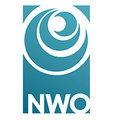
Nine consortia of researchers, companies, government bodies, and societal organisations have been awarded a total of almost 40 million euros to develop technological innovations targeting societal challenges. TU Delft is leader in three awarded consortia and participates in three other consortia, related to our societal themes Resilient Cities & Mobility, Health & Care and Climate & Energy.
06 December 2022
Medical experts and engineers speak each other’s language in Delft
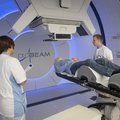
An outpatients’ centre for cancer patients is certainly not the first thing you would expect to encounter on TU Delft campus. ‘But the decision to choose Delft as the location for the Holland Proton Therapy Centre has actually proved to be a very smart move’, says Medical Director Prof. Marco van Vulpen. The location alongside the TU Delft Reactor Institute offers an excellent opportunity for clinicians and engineers to collaborate closely.
01 December 2022
3-in-1 microscope shows researchers the way to proteins
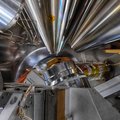
Physicists from TU Delft have developed a 3-in-1 microscope where a light beam, electron beam and ion beam work together to precisely cut out specific slices from biological samples. These slices are indispensable for biomolecular research into new generations of medicines. The invention was published in the journal eLife on 1 December.
30 November 2022
NWO Open Technology funding to produce a versatile acid sustainably

The NWO has awarded over 5.3 million euros to six projects through the Open Technology Programme, including the research of Ludovic Jourdin to make products from CO2 and renewable electricity, based on a versatile acid. Apart from the NWO funding, companies and other organisations involved invest 1.1 million euros into the projects.
29 November 2022
In search of the coveted safe, better, longer-lasting battery: BatteryNL
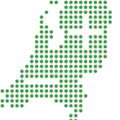
Everyone who works on the development of batteries in the Netherlands, small companies, multinationals and knowledge institutes, has joined together in the BatteryNL consortium to develop the next generation of batteries within eight years based on a better understanding of material interfaces. Prof. M. (Marnix) Wagemaker (TU Delft - Faculty of Applied Sciences) is the project leader of a €9.3 million project funded by NWO-ORC.
24 November 2022
Quantum sound connects future quantum devices
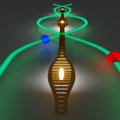
Physicists from the Gröblacher lab at TU Delft have built a device that can link different quantum devices and qubits to each other. This marks the first time that scientists are able to store as many qubits as they’d like within a very compact area on this type of chip.
22 November 2022
ERC Starting Grant for spying on microscopic blood vessels in the heart and brain

The European Research Council (ERC) has awarded a Starting Grant to Delft physicist Sebastian Weingärtner for his research on novel imaging methods to tackle heart and brain diseases.
22 November 2022
Taking a look at the 3,000-year-old sword
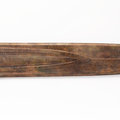
The Ommerschans sword is one of the most important pieces from Dutch prehistory and is part of the collection of the Dutch National Museum of Antiquities. This extraordinary sword has now been examined at the TU Delft Reactor Institute, in search of information about its composition and method of making.
22 November 2022
Fossil free fuels for floating power plants
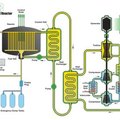
TU Delft, the Netherlands and Seaborg Technologies, Denmark, started a one year project on the investigation of fuel molten salt chemistry for the development of an innovative molten salt nuclear reactor design. The researchers at TU Delft are Dr Anna Smith (Associate Professor) and Lukasz Ruszczynski (Postdoc). Seaborg Technologies’ vision is to deliver clean, cost-competitive, and safe energy with their promising Compact Molten Salt Reactor (CMSR) concept.
17 November 2022
Electric technology to save energy in drying processes

Scientists of TU Delft and four other Dutch universities join forces to save energy in drying processes. In the ELECTRIFIED project, the researchers will use the power of electricity and electrical fields to develop breakthrough technologies for large energy savings in industrial drying processes.